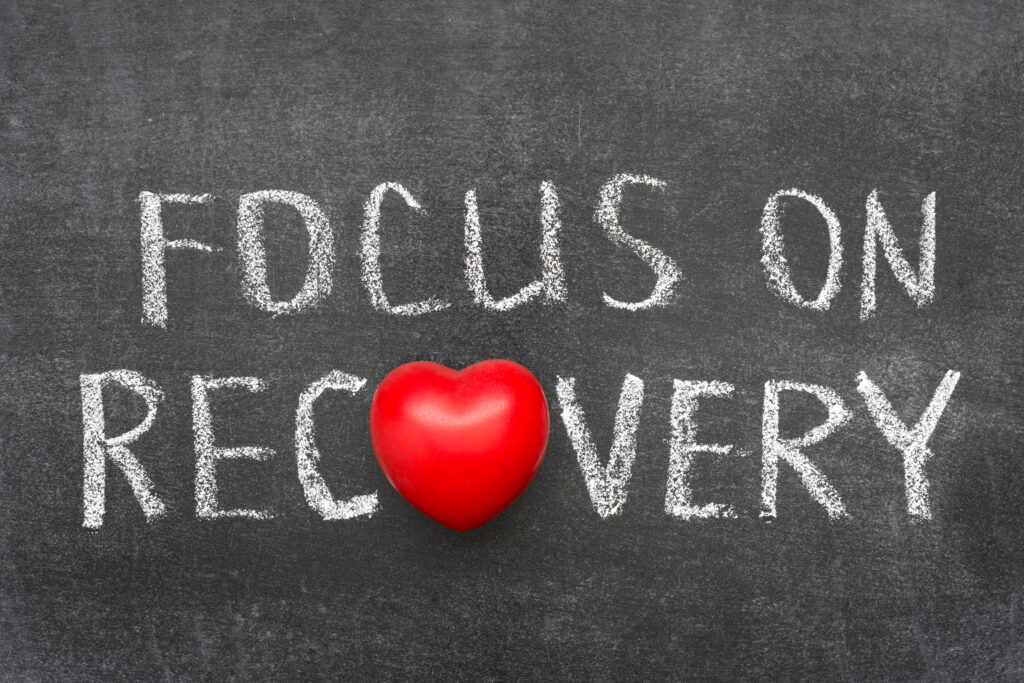When considering addiction treatment in Atlanta, cost shouldn’t be a barrier to receiving quality care. The Summit Wellness Group, a leading recovery center in the Atlanta metropolitan area, understands these concerns and offers various payment solutions to make treatment accessible.
Our commitment to helping individuals begin their recovery journey includes working with multiple insurance providers and offering flexible payment options, ensuring that quality addiction treatment and mental health services remain within reach for those who need them.
Atlanta’s Healthcare Landscape
Atlanta’s healthcare landscape has evolved significantly, with employers increasingly recognizing the importance of comprehensive health coverage for their workforce.
This shift has led to a notable expansion in insurance provider networks throughout the metropolitan area, resulting in more robust mental health and addiction treatment coverage options.
The competitive healthcare market has simultaneously driven innovation in payment solutions as treatment facilities adapt to meet diverse financial needs.
Treatment centers across Atlanta have responded by implementing more flexible payment structures, including sliding scale fees based on income and expanded financial assistance programs.
This combination of improved insurance coverage and innovative payment solutions has created a more accessible treatment environment where individuals seeking help have multiple pathways to afford the care they need.
The region’s growing number of treatment facilities has fostered healthy competition, leading to more patient-friendly financial policies.
Facilities now commonly offer various payment arrangements, from income-based sliding scales to customized payment plans, making treatment more attainable for individuals across different income levels.
Additionally, the increased availability of financial assistance programs through healthcare providers and community organizations has created a more comprehensive support system for those seeking treatment but facing financial constraints.

Understanding the Cost Structure of Rehab Programs
The cost of addiction treatment in Georgia varies significantly based on multiple interconnected factors, reflecting the complex nature of recovery care.
According to the Substance Abuse and Mental Health Services Administration (SAMHSA), treatment costs are influenced by facility type, location within the state, level of care required, and program duration.
In the Atlanta metropolitan area, costs typically reflect the region’s higher standard of living while remaining competitive with other major Southeastern urban centers.
Key factors driving treatment costs include the intensity of medical supervision, specialty services, facility amenities, and staff expertise.
For instance, private facilities in Atlanta’s northern suburbs often command higher rates due to enhanced amenities and lower staff-to-patient ratios.
Meanwhile, facilities within the city proper and southern metro area frequently offer more moderate pricing structures while maintaining high-quality care standards.
Program costs also vary based on specific treatment components, including:
- Medical staff credentials and specializations
- Therapeutic modalities offered
- Medication-assisted treatment availability
- Dual diagnosis capabilities
- Aftercare programming
- Family support services
- Alternative therapy options
Additionally, market dynamics in Georgia’s healthcare sector influence pricing, with factors such as insurance network participation, facility accreditation status, and local competition playing crucial roles in cost determination.
Understanding these variables helps individuals and families make informed decisions about treatment options while considering quality of care and financial accessibility.
Levels of Care and Associated Costs
Detox Services
Medical detox, often the first step in recovery, typically costs between $250-800 per day, with most programs lasting 5-7 days. The exact cost depends on:
- Level of medical supervision required
- Medications needed
- Length of detox period
- Facility type and location
Inpatient Treatment
Residential treatment programs in Atlanta typically range from:
- 30-day programs: $14,000-$27,000
- 60-day programs: $24,000-$45,000
- 90-day programs: $33,000-$58,000
Outpatient Services
Outpatient treatment options, including intensive outpatient programs (IOP) and partial hospitalization programs (PHP), typically cost:
- Standard outpatient: $250-350 per session
- IOP: $3,000-7,000 per month
- PHP: $7,000-12,000 per month
Insurance Coverage for Rehab
The Affordable Care Act mandates that health insurance plans cover substance abuse treatment and mental health conditions.
This federal requirement, known as the Mental Health Parity and Addiction Equity Act, ensures that coverage for substance use disorders must be comparable to coverage for medical and surgical care.
Under these provisions, insurance companies cannot impose stricter limitations on behavioral health services, including more restrictive deductibles, copayments, or treatment authorizations.
Additionally, Georgia state regulations have further strengthened these protections, requiring insurers operating within the state to provide comprehensive coverage for inpatient and outpatient addiction treatment services.
Major Insurance Providers and Coverage
Leading insurance companies offering coverage in Atlanta include:
Aetna
- Coverage ranges from 60-100% for in-network treatment providers
- Higher-tier plans offer lower deductibles and copayments
- Preauthorization required for residential treatment
- Covers multiple levels of care:
- Medical detox: 80-100% after deductible
- Inpatient treatment: 70-100% with preauthorization
- Outpatient services: $25-45 copay per session
- Medication-assisted treatment: Covered with prior approval
- Out-of-network coverage is available at reduced rates
- Annual deductibles range from $500-$2,500
Cigna
- Comprehensive coverage across the treatment spectrum
- Three-tier coverage system:
- Bronze: 60% coverage after deductible
- Silver: 70-80% coverage after deductible
- Gold/Platinum: 90-100% coverage after deductible
- Specialized behavioral health programs include:
- Virtual therapy options
- Collaborative care coordination
- Crisis intervention services
- Long-term recovery support
- No annual treatment limits for in-network care
- Extensive prescription coverage for addiction medications
Humana
- Tiered copayment structure based on service type:
- Outpatient visits: $20-50 per session
- Intensive outpatient: $40-75 per day
- Residential treatment: $250-500 per admission
- Medication management: $15-35 per visit
- Coverage features:
- Direct provider payment options
- Integrated care coordination
- Behavioral health specialists
- Wellness program participation incentives
- Telehealth services are covered at reduced copayments
- Family therapy is included in most plans
Blue Cross Blue Shield of Georgia
- Largest provider network in the state includes:
- 85% of Georgia treatment facilities
- All major hospital systems
- Specialized addiction treatment centers
- Mental health practitioners
- Coverage levels:
- Bronze plans: 60% after deductible
- Silver plans: 70-80% after deductible
- Gold plans: 80-90% after deductible
- Platinum plans: 90-100% after deductible
- Enhanced benefits:
- Care management programs
- Recovery coaching
- Aftercare support
- Prevention services
- Specialized programs for:
- Young adults
- Professionals
- Dual diagnosis
- Chronic conditions

Medicare and Medicaid Coverage
Medicare provides substantial coverage for addiction treatment services, typically covering up to 80% of approved treatment costs after beneficiaries meet their deductible.
This federal insurance program has recently expanded its behavioral health coverage, making treatment more accessible for eligible individuals.
Georgia Medicaid complements these federal benefits by offering comprehensive coverage for essential substance abuse treatment services throughout the state.
The program’s coverage encompasses a full spectrum of care, including inpatient detoxification services for those requiring medical supervision during withdrawal, comprehensive outpatient treatment programs, and evidence-based medication-assisted treatment options.
Additionally, Georgia Medicaid recognizes the importance of addressing co-occurring disorders by including robust mental health treatment coverage, ensuring that beneficiaries can access integrated care that addresses both substance use and mental health needs simultaneously.
State and Federal Assistance Programs
Georgia offers several programs to help cover treatment costs, creating a comprehensive safety net for individuals seeking addiction treatment regardless of their financial situation.
These programs represent a collaborative effort between state agencies, federal funding sources, and local healthcare providers to ensure treatment accessibility.
The Georgia Department of Behavioral Health and Developmental Disabilities (DBHDD) is the primary coordinator for these initiatives, working with federal block grants and state appropriations to maximize available resources.
Recent expansions in state funding have strengthened these programs, with Georgia allocating an additional $27 million in 2024 specifically for substance abuse treatment assistance.
Together, these state and federal programs create multiple pathways to treatment, ensuring that financial constraints don’t prevent individuals from accessing the care they need.
State-Funded Programs
The Georgia Department of Behavioral Health and Developmental Disabilities (DBHDD) maintains a robust funding structure designed to support various populations in need of substance abuse treatment.
This state agency prioritizes assistance for low-income individuals, uninsured residents, and specific priority populations, ensuring that vulnerable communities access essential treatment services.
According to SAMHSA data, Georgia’s substance abuse treatment initiatives received a significant boost in 2023, with $58 million in federal funding allocated to expand and maintain treatment services across the state.
This substantial investment supports a network of 47 state-funded treatment centers, each offering sliding-scale payment options to make care more affordable for those with limited financial resources.
Additionally, these facilities provide crucial emergency treatment services, creating a comprehensive safety net for individuals requiring immediate intervention.
State and federal funding has strengthened Georgia’s treatment infrastructure, making quality care more accessible to those who might otherwise struggle to afford necessary services.
Special Population Assistance
Georgia recognizes that different communities face unique challenges in accessing addiction treatment and has developed targeted assistance programs to address these specific needs.
These specialized initiatives ensure that vulnerable populations, including veterans, pregnant women, adolescents, and individuals with co-occurring disorders, can access treatment services tailored to their unique circumstances.
Through carefully designed programs and dedicated funding streams, these specialized services help bridge gaps in traditional treatment access while addressing each population group’s cultural, social, and medical considerations.
Veterans
Military service members and veterans have access to robust addiction treatment coverage through multiple federal programs.
- TRICARE provides extensive substance abuse treatment benefits for active duty personnel, their families, and military retirees, covering both inpatient and outpatient services with minimal out-of-pocket costs.
- Veterans Affairs (VA) benefits complement these services by offering comprehensive coverage for substance use disorders, including specialized treatment programs explicitly designed for service-related conditions.
- The VA’s integrated care approach ensures that veterans can access treatment that addresses both addiction and related mental health concerns, such as PTSD or depression while coordinating care through the VA healthcare system.
These programs demonstrate the federal government’s commitment to supporting the unique healthcare needs of those who have served our country.
Pregnant Women and Parents
Georgia recognizes the critical importance of supporting pregnant women and parents struggling with substance use disorders by providing comprehensive treatment options and prioritized care access.
These individuals receive expedited admission to state-funded treatment programs, ensuring they can begin recovery without potentially harmful delays.
- Through enhanced Medicaid coverage, pregnant women and parents can access an expanded range of treatment services, including specialized prenatal care, medication-assisted treatment, and comprehensive behavioral health support.
- The state also provides additional support services such as childcare assistance, transportation, parenting classes, and case management to help maintain family stability throughout the recovery process.
This multi-faceted approach reflects Georgia’s commitment to protecting both parent and child health while supporting long-term recovery success.
Young Adults
Georgia has developed targeted treatment programs that address the unique needs and financial constraints of young adults seeking addiction recovery services.
These initiatives include specially negotiated program rates that make treatment more affordable for individuals in this age group, recognizing their often limited financial resources.
- Through strategic partnerships with educational institutions, including colleges and technical schools, young adults can access treatment while maintaining their academic progress. Some programs offer coordinated care that aligns with academic schedules.
- Additionally, family-based payment options allow parents or guardians to assist with treatment costs while maintaining the young adult’s confidentiality and autonomy in their recovery journey.
This comprehensive approach helps ensure that age-appropriate, accessible treatment is available during this critical life stage.
Alternative Payment Options
Understanding that treatment costs can present a significant barrier to recovery, Georgia treatment centers offer various flexible payment solutions beyond traditional insurance coverage.
These alternative payment arrangements help make treatment more accessible to individuals across different financial situations, ensuring that cost concerns don’t prevent anyone from seeking the care they need.
These options, from sliding-scale fees to payment plans, scholarship programs, and charitable funding sources, provide multiple pathways to access essential treatment services.
Sliding Scale Fees
Many treatment centers in Georgia implement comprehensive sliding-scale fee structures to make treatment more financially accessible.
These flexible payment arrangements carefully consider multiple factors to determine appropriate treatment costs for each individual.
- Income level is the primary determining factor, with centers typically requiring recent pay stubs, tax returns, or other income verification to establish the base rate.
- Family size plays a crucial role in the assessment, as centers recognize that larger households face increased financial responsibilities and often allow for additional fee reductions based on the number of dependents.
- Financial obligations, such as medical bills, housing costs, educational expenses, and existing debt, are also evaluated to create a more complete picture of an individual’s ability to pay.
Treatment centers regularly review these factors to adjust payment schedules as needed, ensuring that changing financial circumstances don’t interrupt the recovery process.
Payment Plans and Financing
Treatment centers understand that managing the cost of recovery requires flexible financial solutions, leading many facilities to offer diverse payment and financing options.
- Monthly payment plans allow clients to spread treatment costs over time, often with no interest charges. They also offer customizable payment schedules that align with individual pay periods or financial situations.
- Healthcare-specific loans through partnered financial institutions are another viable option for those needing additional support. They offer competitive interest rates and terms designed specifically for medical and treatment expenses.
- Many facilities also maintain scholarship programs funded through private donations and organizational resources, providing partial or full coverage of treatment costs for individuals demonstrating significant financial need.
These varied financial arrangements ensure that individuals can access necessary treatment while maintaining financial stability throughout their recovery.

Non-Profit and Community Resources
Atlanta’s robust non-profit sector supports individuals seeking addiction treatment through diverse community-based resources and programs.
- Faith-based organizations offer specialized recovery programs that integrate spiritual support with evidence-based treatment approaches, often at reduced or no cost to participants.
- Community health centers throughout the metropolitan area serve as crucial access points for treatment. They provide comprehensive care services, including medical screening, counseling, and referrals to specialized treatment programs.
- These services are complemented by extensive support group networks, including secular and faith-based recovery meetings, providing ongoing peer support and community connection throughout the recovery journey.
This interconnected system of non-profit and community resources ensures that individuals have multiple pathways to access the support they need, regardless of their financial situation or personal beliefs.
Spend Your Time and Money Wisely
The Summit Wellness Group understands that navigating treatment costs can feel overwhelming. Their experienced staff works with you to:
- Verify insurance benefits
- Explore payment options
- Create affordable treatment plans
- Access available resources
Don’t let financial concerns prevent you from seeking help. Contact The Summit Wellness Group today to discuss payment options and begin your recovery journey. Our team will help you understand your insurance coverage and find the most affordable path to quality treatment.
